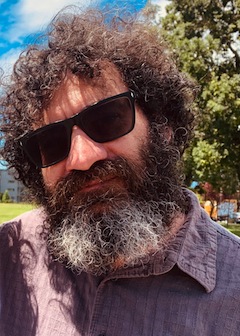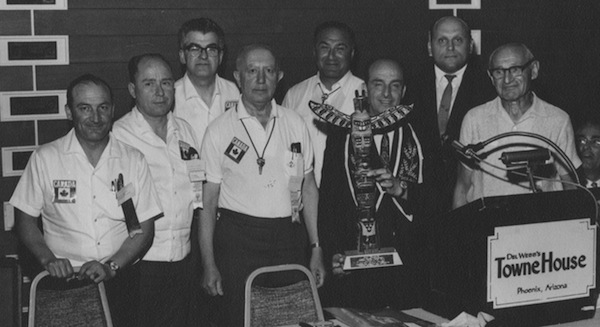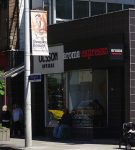The number of antisemitic hate crimes in Canada declined a fraction last year, according to the B’nai Brith Canada League for Human Rights Annual Audit of Antisemitic Incidents 2022. The decline, though, is from 2021, which saw the highest number of incidents since the audit began 40 years ago so, despite the marginally good news, 2022 remains the second-worst year on record. In all, 2022 saw 2,769 incidents, down 1.1% from the 2,799 incidents reported in 2021.
“When viewed from a historical perspective … the numbers are less reassuring,” Marvin Rotrand, national director of the League for Human Rights, writes in the report. “In 2012, the Jewish community sounded the alarm when that audit noted 1,345 antisemitic incidents, the highest ever since we first began auditing in 1982. Ten years later, the number is an alarming 105.9% higher than that reported in 2012, and the second-highest total since we started tracking 41 years ago.”
Aron Csaplaros, British Columbia regional manager for B’nai Brith Canada, noted the most significant finding is that the majority of hate incidents are online.
“The audit says that 74% of hate is now online and that violent incidents are down,” he told the Jewish Independent. Violent incidents across Canada dropped to 25 last year from 75 the year previous. “But incidents have been moving online in the past decade or so and it’s kind of equally, if not more, dangerous when hate is online because it’s much easier to spread, more people read it,” he said. “It’s about context. It’s obviously different than a violent incident but it is equally as dangerous.”
Csaplaros does not have a clear explanation on why violent incidents saw such a drop. It may have to do with the fact that 2022 saw slightly less incendiary conflict in Israel and Palestine, overseas problems that invariably have repercussions worldwide.
“Obviously, we’re happy that violent incidents have gone down,” he said. “Hopefully, the reason for that is that certain provinces have adopted, for example, the IHRA [International Holocaust Remembrance Alliance] definition of antisemitism, and that might have filtered down into education for police forces and how they respond and deal with these situations. But we don’t really have a theory on why the violent incidents have gone down.”
In British Columbia, the number of violent crimes declined from two in 2021 to a single incident in 2022: a threat against Victoria’s Jewish Community Centre during the annual Jewish film festival in the capital city. Other B.C. instances include 51 cases of vandalism, 53 cases of harassment and 137 cases of online hate.
Csaplaros acknowledged that it is difficult to place a number on online antisemitic incidents.
“There are, unfortunately, probably thousands, millions of anti-Israel and antisemitic comments online and, obviously, just because of the sheer number of them, we don’t catch all of them,” he said.
The criteria B’nai Brith uses to measure hate online includes the question, “Is it antisemitic in that it targets Jews as a people and attribute negative things to them? For example, that they caused COVID, or do they use antisemitic stereotypes like Jews control the banks and so on and so forth,” explained Csaplaros. “With a lot of these comments, they are clearly antisemitic.”
B’nai Brith, he said, uses the “three Ds” measure created by Natan Sharansky: delegitimization, demonization, and applying double standards to the state of Israel.
While 74% of incidents were online, 15% involved vandalism, 10% in-person harassment and 1% were violent incidents.
In British Columbia overall, incidents declined more than 40%, to 242, compared with 409 the previous year. (For the purposes of the report, British Columbia and Yukon are reported together.) Examples of B.C. incidents included in the B’nai Brith report are the Simon Fraser University student society’s passing of a resolution referring to Israeli “war crimes and apartheid” and a Tweet accusing Jews of Satan worship and seeking world domination.
“At the end of the day, hate is hate,” said Csaplaros. “It’s important to have a record of how many antisemitic incidents occurred, regardless of whether it was a Laith Marouf-type thing or a violent incident or a swastika drawn on the sidewalk. Hate and antisemitism is hate … and it’s important to record all of that.”
Laith Marouf is a Montreal activist whose Community Media Advocacy Centre received more than $133,000 in federal government consulting fees before his antisemitic social media postings became widely known, including one in which he called Jewish people “loud mouthed bags of human feces.”
Csaplaros called on the province of British Columbia to join half of Canada’s other provinces in adopting the IHRA definition of antisemitism and to follow Ontario’s lead by introducing Holocaust education into the elementary school curriculum. The core curriculum in British Columbia does not mandate any Holocaust education, Csaplaros said. Students can learn about the Holocaust in elective courses and may learn about it in core courses, depending on the teacher’s choices.
The full annual audit is online at bnaibrith.ca.









